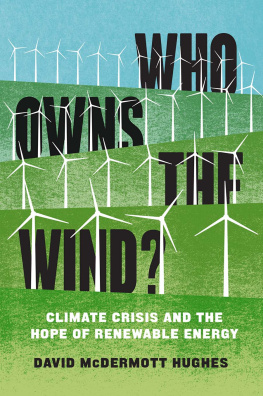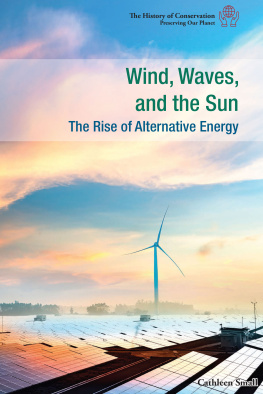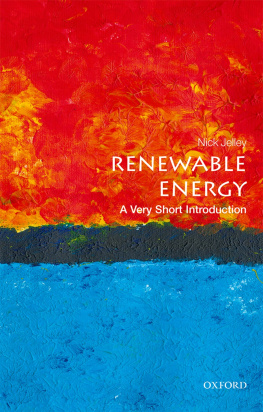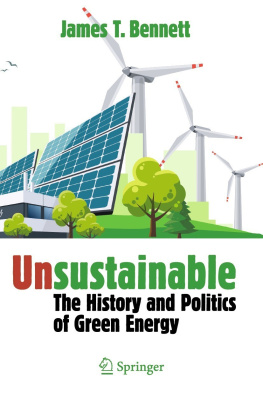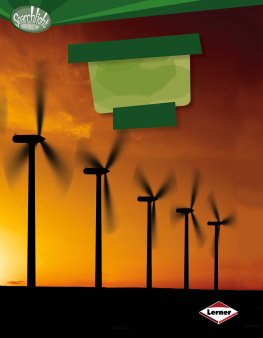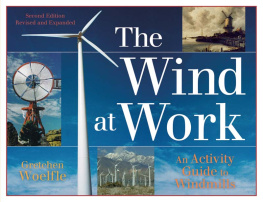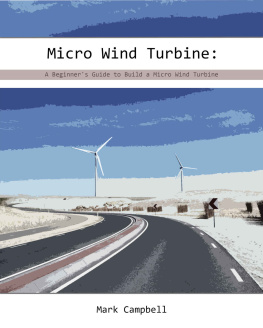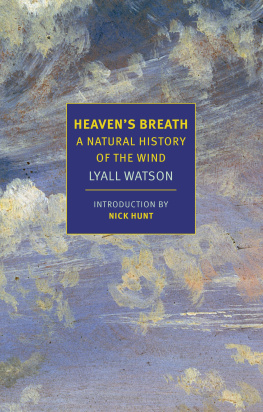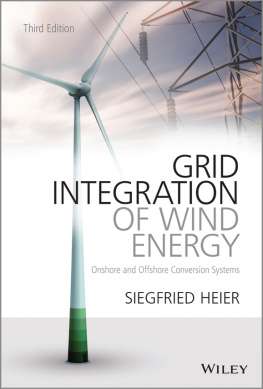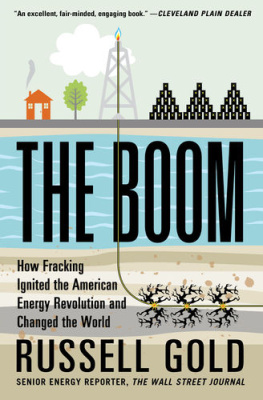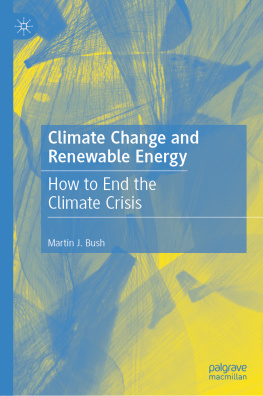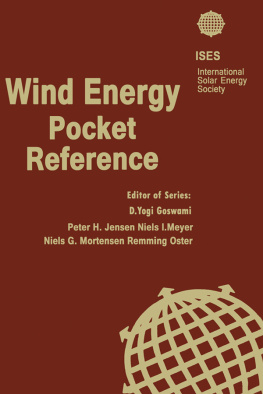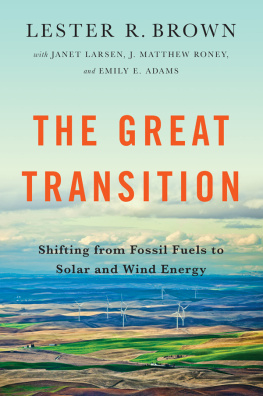Contents

Who Owns
the Wind?
DAVID HUGHES is professor of anthropology at Rutgers, the State University of New Jersey. He has written articles for Boston Review and three previous books, including Energy without Conscience. As an activist, Hughes has served as president of his faculty union and as a member of the Climate Task Force of the American Federation of Teachers.
Who Owns
the Wind?
Climate Crisis and the Hope of
Renewable Energy
David McDermott Hughes

First published by Verso 2021
David McDermott Hughes 2021
All rights reserved
The moral rights of the author have been asserted
1 3 5 7 9 10 8 6 4 2
Verso
UK: 6 Meard Street, London W1F 0EG
US: 20 Jay Street, Suite 1010, Brooklyn, NY 11201
versobooks.com
Verso is the imprint of New Left Books
ISBN-13: 978-1-83976-113-3
ISBN-13: 978-1-83976-115-7 (US EBK)
ISBN-13: 978-1-83976-114-0 (UK EBK)
British Library Cataloguing in Publication Data
A catalogue record for this book is available from the British Library
Library of Congress Cataloging-in-Publication Data
A catalog record for this book is available from the Library of Congress
Typeset in Fournier by Hewer Text UK Ltd, Edinburgh
Printed and bound by CPI Group (UK) Ltd, Croydon CR0 4YY
For my brothers, Kenny and Corey
Contents
I am grateful to the many simptico/as who helped me so much in my fieldwork. For their privacy, they remain anonymous, as does the Andalusian village featured in this book. Fuertes abrazos a todos. With particular fondness, I remember the activist and painter known, in these pages, as ngel Monedero, who died unexpectedly as I was writing this book. In Cdiz, I thank Jos Berasaluce and Isabel Caballero for their generosity and friendship. Nessim Achouche, Dominic Boyer, Sebastian Budgen, Gareth Dale, Veronica Davidov, James Ferguson, Cymene Howe, James McCarthy, Melanie McDermott, Benjamin Orlove, Jesse Ribot, Corey Robin, and Stephanie Rupp commented on all or part of the manuscript. Judith Hughes, my mother, applied her keen eye to every page. I thank Deborah Chasman and Boston Review. Parts of publication of this book. I presented part of it at the University Seminar on Culture and Ecology. Rutgers Universitygreatly improved by our AAUP-AFT faculty unionensured the conditions of my scholarship. As each time before, Melanie McDermott, mi amor, made this work possible in unmeasurable ways. And our children, Jesse and Sophia, gave me both a reason and need to write with hope.
The following is a list of informants mentioned in more than one chapter in order of appearance. To respect the privacy of individuals, I have used pseudonyms in almost all cases and, in one case, combined two individuals into one character. I changed the name of the village and of the sole farm mentioned. Unless otherwise noted in the text, all conversations took place in Spanish.
Carolina | co-owner of Serenos bed-and-breakfast |
Daniel | her husband and the other co-owner |
Ral | one of my immediate neighbors |
ngel Monedero | the artist leading the movement against turbines |
Vernica | his wife |
Reynaldo | the informal mayor of Sereno |
Diego | owner of the With Horizon restaurant in Sereno |
Lorenzo | my immediate neighbor, who moved from Barcelona |
Alejandro Baptista | the landowner who worked with ngel Monedero |
Csar | one of the main anti-turbine activists |
Andrs | his activist partner, known as el Ingls |
Ricardo Soares | the largest landowner in the area |
Isabel | president of the local womens association |
Eduardo | a small landowner |
Miguel | a wind turbine technician, or tcnico |
Jos Luis Tirado | the photographer and filmmaker who fought turbines outside Vejer |
Jos Antonio Gil | the bird monitor and award-winning photographer |
Ximena | owner of To the Four Winds restaurant |
Mateo | the chef at Four Winds |
Fossil fuels should be over and done with. They spawn corruption, pollution, and death from Nigeria to New Orleans. A just worldone concerned to protect itself from climate changewould have abandoned them a long time ago. Now, late in the game, we need to switch rapidly to renewable energy, a large chunk of which will come from the wind. Yet, this energy transition is not certainmaybe not even likely. There are preconditions, some quite difficult. It is not simply a question of installing technologyerecting it, plugging it in, and wiring it up. The energy transition is a social transition too. The burning of fossil fuels must end in a way that is fair. Unfair conditions limit the shift to renewables and thereby perpetuate oil. To make enough electricity, wind needs justice.
I began this inquiry as a cautious moderate in relation to the Green New Deal. circulated in the US Left. Renewable energy would bring, in its sidecar, both universal health care and an employment guarantee. Effectively, this plan would overturn much of capitalism and all of fossil fuels. For a social critic like myself, what was not to like? But it seemed too heavy a political lift. A society cannot stabilize the climate on an emergency basis while undertaking, simultaneously, the friction-filled work of reforming the economy. Be pragmatic. Set your priorities. So I thought, as did many others on the US Left. We prepared, yet again, to defer a reckoning with inequality.
And an energy transition seemed increasingly possible within capitalism. From the 1990sif not earliercorporations had found ways of making money from sustainability. From ecotourism to organic food, businesses were turning a profit based on care forrather than destruction ofhabitats, plants, and animals. Scholars have described this shift as an ecological phase of capitalism. Indeed, as Jason Moore writes in Cap italism in the Web of Life, this economic system always expands into natures on the frontier. Now, having conquered the continents, capitalism moves upward and outward. Wind and sunlight could serve as the next frontier, in the atmospheric, photonic phase of capitalism. And so they appear be doing. More and more firms invest in three-bladed turbines, photovoltaic cells, and the electricity they generate. In the short term, perhaps one should simply encourage the capitalists, now eco-capitalists, to follow the course of technological progress into the energy transition. Moderates said as much.
Of course, oil, gas, and coal give us far more energy today. But that is not the point. Previous energy transitions have been additive. The next energy transitionthis time, away from hydrocarbonsmust replace them. We have to stop burning oil, gas, and coal virtually altogether. We have to leave them in the ground. Eco-capitalists arent promoting this outcome. Most of them prefer to invest in renewables

